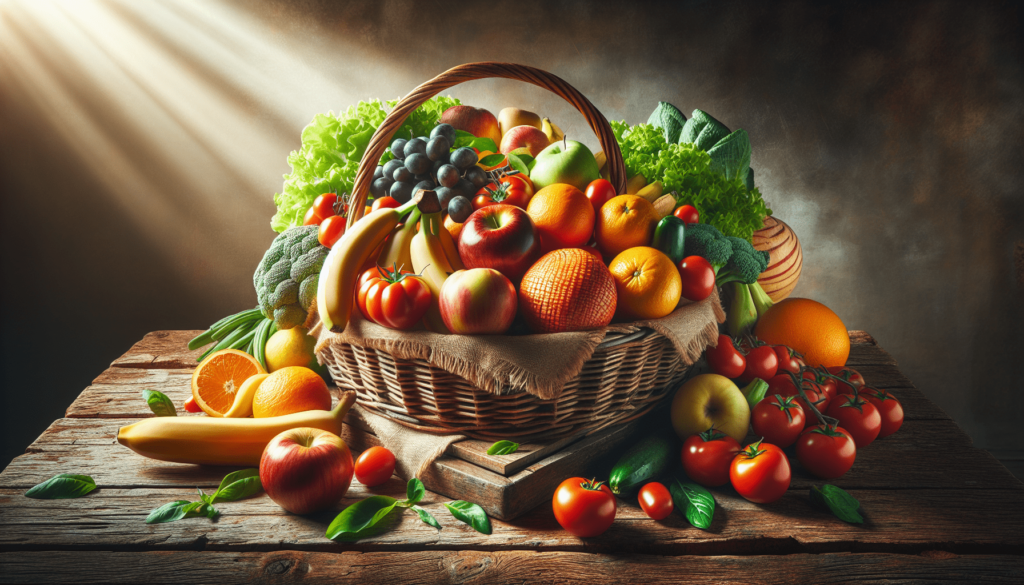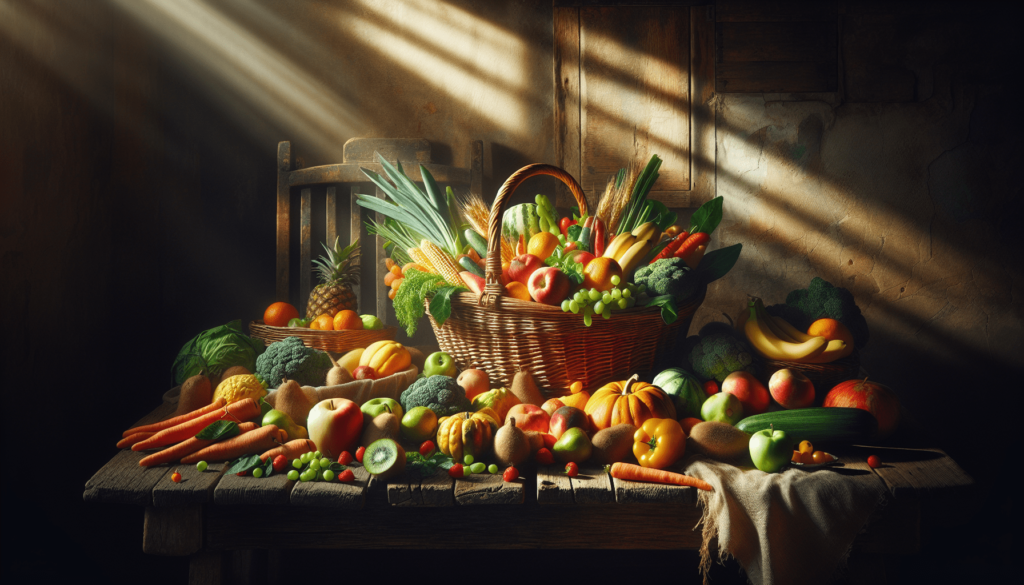Diving into the world of organic foods can open up a plethora of health benefits for you and your family. In this article, we’ll explore how choosing organic can lead to a healthier lifestyle, potentially reducing your exposure to pesticides and chemicals often found in conventionally farmed produce. Beyond just health benefits, we’ll delve into the environmental perks that come with supporting organic farming practices, which promote biodiversity and soil health. Get ready to discover how swapping to organic goods might just be the key to enhancing your wellbeing and contributing to a healthier planet! Have you ever wondered if reaching for that organic apple instead of a conventional one makes a difference in your health and the planet? The rise of organic food consumption has sparked discussions about its benefits, with opinions varying widely. However, the momentum towards organic is stronger than ever – but why?

What Exactly Is Organic Food?
Organic food refers to the way agricultural products are grown and processed. To be certified as organic, these foods must meet specific standards set by national or international organizations.
The Standards for Organic Farming
Organic farming emphasizes the use of renewable resources and the conservation of soil and water to enhance environmental quality. Organic standards strictly prohibit the use of synthetic pesticides, chemical fertilizers, and genetically modified organisms (GMOs).
Certification Process
For a product to be labeled as organic, it has to undergo a certification process, which includes rigorous inspections and detailed record-keeping. This ensures the integrity of the organic products from the farm to your fork.
Why Choose Organic Foods?
The decision to buy organic can stem from concerns about personal health, environmental impact, or the desire to support ethical and sustainable farming practices. Let’s dig into the specific benefits that might influence your choice.
Health Benefits
Organic foods often contain higher nutrient levels than their non-organic counterparts. They are grown without synthetic pesticides, reducing your exposure to harmful chemical residues.
Nutrient Content
Several studies have shown that organic produce tends to have higher levels of vitamin C, antioxidants, and certain minerals. These nutrients are essential for maintaining a healthy body and preventing diseases.
Reduced Chemical Exposure
Choosing organic means you consume fewer chemicals. Conventional agriculture often uses pesticides that can remain on (and in) the food we eat. Organic practices offer a cleaner alternative for your meals.
Environmental Impact
Organic farming practices are designed to reduce pollution and conserve water and soil, making them more sustainable in the long run.
Conservation Methods
Organic farmers often rotate crops, use cover crops, and engage in other soil-enhancement techniques to increase soil fertility. This not only helps grow healthier crops but also supports wildlife.
Reduced Pollution and Pesticides
By avoiding chemicals in farming, organic farms produce less pollution. Waterways are less contaminated, and ecosystems are not overloaded with toxic substances, supporting biodiversity.
Ethical Considerations
Organic farming tends to be more labor-intensive than conventional farming, which often translates into better treatment of workers through fair wages and more favorable working conditions.
Support for Small Farms
Purchasing organic products can support small and local farmers who choose to engage in organic farming practices, fostering a healthier local economy and community.
Comparing Organic and Non-Organic Foods
When you’re shopping, the differences between organic and non-organic foods might not be immediately visible beyond the packaging and price. However, the distinctions go deep, affecting not only quality but also environmental and health impacts.
Nutritional Differences
While studies vary, many have pointed out that organic foods typically carry higher amounts of certain nutrients, antioxidants, and vitamins.
Example: Nutritional Chart
| Nutrient | Organic | Non-organic |
|---|---|---|
| Vitamin C | Higher | Lower |
| Antioxidants | Higher | Lower |
| Pesticide Residues | Lower | Higher |
Taste and Quality
Many people claim that organic food simply tastes better. This could be due to the enhanced growing practices and reduced chemical usage which is said to produce more naturally flavorful produce.
Cost Comparison
Organically grown foods are generally more expensive than conventionally grown foods. This is due to the more labor-intensive methods of organic farming and the higher cost of sustainable practices.
Challenges and Criticisms of Organic Farming
No solution is perfect, and the same goes for organic farming, which has its own set of challenges and criticisms.
Production Rates
Organic farming typically has lower yields compared to conventional farming, which can be seen as a disadvantage as it requires more land to produce the same amount of food.
Economic Factors
The higher cost of organic foods can make them inaccessible to some populations, raising concerns about equity and access to healthy food.

Making the Choice: Is Organic Right for You?
Deciding whether to buy organic is a personal choice that can be influenced by health concerns, environmental impact, and budget considerations.
Health Considerations
If reducing your exposure to pesticides and consuming nutrients at their natural levels is important to you, then organic is a great choice.
Environmental Concerns
If you are passionate about conserving natural resources and supporting biodiversity, choosing organic helps promote these values.
Budgetary Decisions
Organic foods typically do cost more, so it’s important to consider your budget. Remember, you don’t have to go fully organic — choosing organic for the most pesticide-heavy foods might be a way to balance cost and health benefits.
Conclusion
In the debate between organic and non-organic, the right choice really depends on your personal priorities. Whether it’s health, environmental concerns, or financial considerations, understanding the benefits and limitations of organic foods can help you make informed decisions that align with your values and lifestyle. Choosing organic, even if it’s just for certain items, can be a step towards a more sustainable and healthy way of living. Remember, every small choice can make a big difference!
